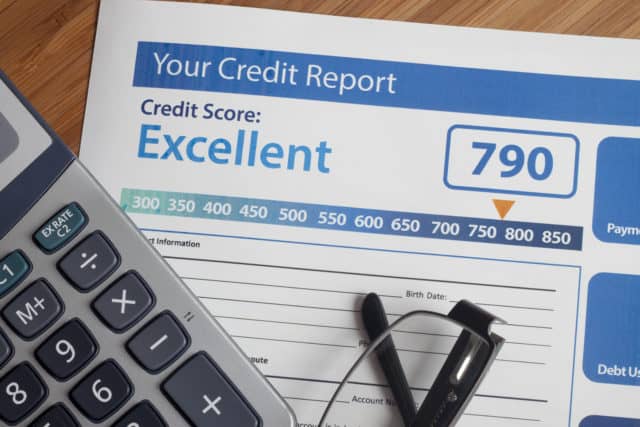To make Wealthtender free for readers, we earn money from advertisers, including financial professionals and firms that pay to be featured. This creates a conflict of interest when we favor their promotion over others. Read our editorial policy and terms of service to learn more. Wealthtender is not a client of these financial services providers.
➡️ Find a Local Advisor | 🎯 Find a Specialist Advisor

One of my favorite websites is despair.com.
You know those slick motivational posters big companies love hanging on their office walls? Like “Teamwork” or “Success”? Well, Despair sells products that mock those posters. Their website says:
“MOTIVATIONAL PRODUCTS DON’T WORK. BUT OUR DEMOTIVATOR® PRODUCTS DON’T WORK EVEN BETTER.”
Gotta love it!
One of their funnier demotivators shows a castle-style mansion with lovely landscaping surrounding a beautiful pond.
The caption under it?
“Wealth: All I Ask for Is a Chance to Prove that Money Can’t Buy Happiness.”
I bet that’s a universal sentiment (at least if you’re not already wealthy).
Can Money Buy Happiness?
As I discuss here and here, research proves that more money does buy you more happiness, at least up to a (pretty high) point.
With some scaling from what research tells us, your annual family income in the US would need to be close to $200,000 to reach peak happiness.
My colleague Ben Le Fort agrees.
But how does that work? What concrete benefits does more money bring, and do those come without any drawbacks?
What More Money Gets You
In general, more money brings you 3 benefits:
- You have more security against financial catastrophes
- You can say “No” to more things you don’t want
- You can say “Yes” to more things you want
Financial Security
It’s a question of when, not if, something bad will happen to your finances.
For me, it was shortly after closing on the purchase of an office suite that was still an empty shell that needed to be built out before we could use it and/or rent out the portion we don’t use.
Suddenly, my profitable consulting business suffered an 80% revenue decline that lasted for almost a year. This just when we needed to invest 6 figures in the suite’s buildout!
We were fortunate, and between our savings and some external support, managed to weather that catastrophe, coming out the other end even better off than before.
More money lets you survive such financial calamities.
And, no, there’s no downside to this benefit (unless you take stupid risks because of the sense of security).
Saying “No” to Things You Don’t Want
Here are some scenarios demonstrating how this can play out.
- Your boss tells you to stay at work, rather than go during your lunch break to feed your sick wife and your infant son (and yes, that happened to me – I told him off, but it cost me later)
- You lose your job, and the first new one you’re offered pays less for more hours, and has a longer commute to boot (while I did lose my job once, I didn’t settle for another, starting a business instead)
- You’re already working full-time in your solo business, and a prospective client asks you to take on their project that requires 40+ weekly hours (yes, this too has happened to me – I counter-offered that I could give them 5 weekly hours for a smaller role)
In each of these scenarios, and in countless others that can and do happen to people, having more money lets you say “No” to more things. These could be bad things (like the first two examples), or good things that would simply be too much (like the last example).
Here too, no downside.
Saying “Yes” to More Things You Want
This one is easiest to understand – If you have more money, you can afford to buy more stuff.
It sounds great, and at first it sure feels great, but…
This is what’s known as “lifestyle inflation,” where your spending expands as fast as (or worse, faster than) your income.
I won’t deny that going to fancier restaurants or staying at fancier hotels is more enjoyable. However, due to an effect known as the “hedonic treadmill,” the extra happiness you experience tends to fade as the fancier stuff becomes your “new normal.”
Enter the big downside…
In this regard, more money just runs your hedonic treadmill faster and faster, without higher long-term happiness. It just costs more to be as happy as you were before.
Then, if and when the extra money goes away, you have to choose between downgrading your lifestyle, an unhappy situation, or spending money you no longer have, and dropping into a debt spiral.
How to Avoid the Downside
Since the increased happiness from spending more money is temporary, and it puts you at greater risk of poverty (especially in retirement if you run out of money), you need to do something different.
My advice, which I’ve been implementing for many years now, is to set aside and invest at least half of the extra money (I’ve been shooting for 2/3 of the extra money). This provides three benefits:
- You get to enjoy a higher standard of living (with the 1/3 – 1/2 of the extra income)
- You significantly increase your savings rate, and thus your ultimate retirement nest egg
- You significantly reduce your risk of poverty because of the above two elements
The Bottom Line
If offered, few people would turn down more money. This is completely understandable.
More money offers greater security, greater freedom/control, and a way to improve your standard of living. However, that last comes with a big downside, that you have to take into account and mitigate.
The above details the benefits, the downside, and the best mitigation plan for avoiding that downside.
Are you ready to enjoy life more with less money stress?
Sign up to receive weekly insights from Wealthtender with useful money tips and fresh ideas to help you achieve your financial goals.
Disclaimer: This article is intended for informational purposes only, and should not be considered financial advice. You should consult a financial professional before making any major financial decisions.

About the Author
Opher Ganel, Ph.D.
My career has had many unpredictable twists and turns. A MSc in theoretical physics, PhD in experimental high-energy physics, postdoc in particle detector R&D, research position in experimental cosmic-ray physics (including a couple of visits to Antarctica), a brief stint at a small engineering services company supporting NASA, followed by starting my own small consulting practice supporting NASA projects and programs. Along the way, I started other micro businesses and helped my wife start and grow her own Marriage and Family Therapy practice. Now, I use all these experiences to also offer financial strategy services to help independent professionals achieve their personal and business finance goals. Connect with me on my own site: OpherGanel.com and/or follow my Medium publication: medium.com/financial-strategy/.
Learn More About Opher
To make Wealthtender free for readers, we earn money from advertisers, including financial professionals and firms that pay to be featured. This creates a conflict of interest when we favor their promotion over others. Read our editorial policy and terms of service to learn more. Wealthtender is not a client of these financial services providers.
➡️ Find a Local Advisor | 🎯 Find a Specialist Advisor







